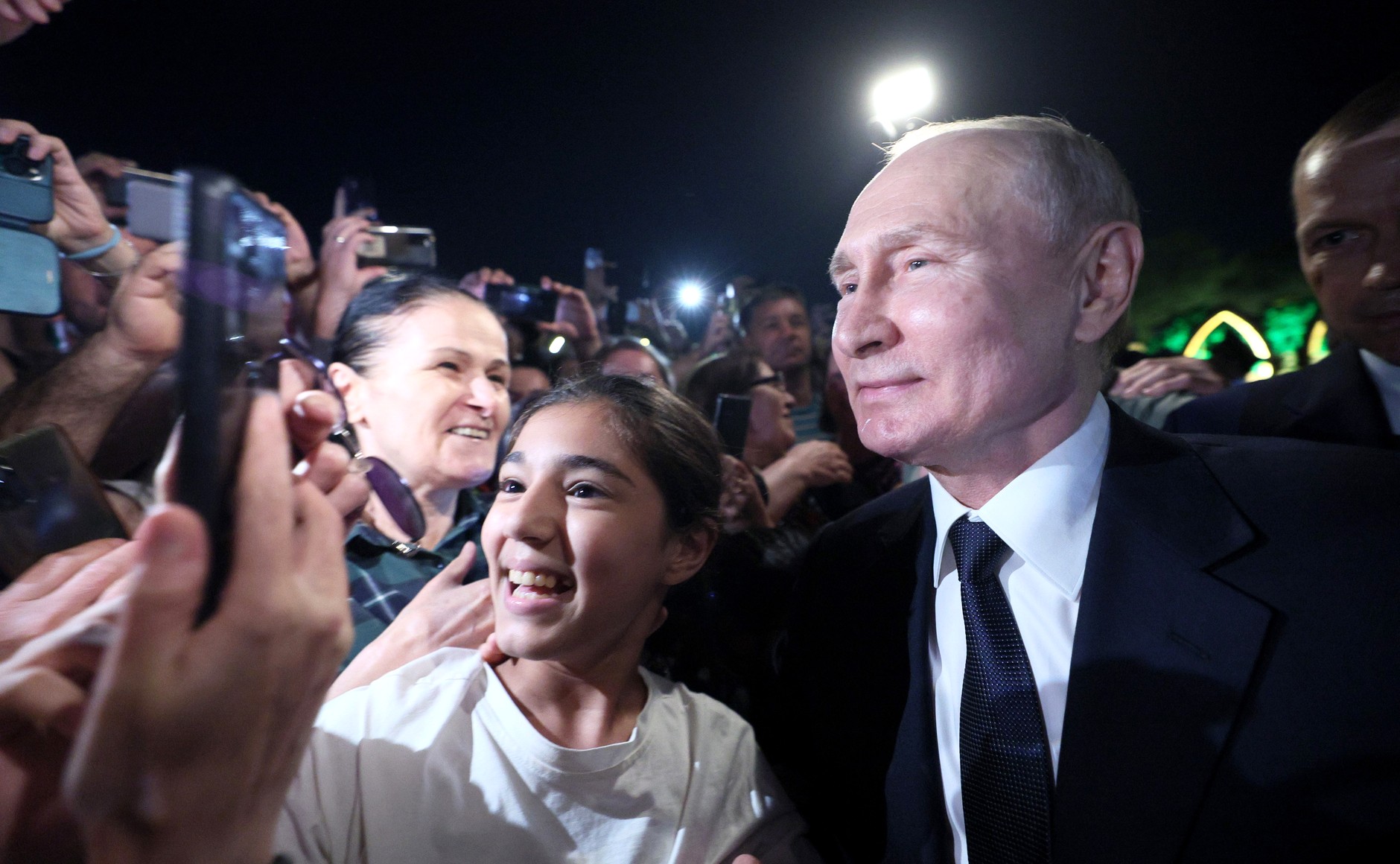Putin, power & mutiny

Putin with a resident of Derbent
Hailey Brown - The attempted mutiny by the Wagner Group, a paramilitary group led by Yevgeny Prigozhin, marks the greatest challenge to President Vladimir Putin’s power. Last Saturday the group seized the Southern Military District Headquarters before coming within 125 miles of Moscow before ceasing their march. Now, Putin and the Kremlin have begun to reassure both Russians and the world of their control over Russia through the media and public appearances.
Putin’s most intimate public interactions with civilians since before the COVID-19 pandemic, and continued communications with the public since the mutiny, are methods to maintain ideological power. Ideological power is a facet of geopolitical power which entails having others follow your agenda or do what you want willingly. As President, Putin has created a common-sense view of Russia for both its citizens and the world; a view in which leadership of Russia is taken for granted. In this view he maintains ultimate power and control in the country and the Kremlin. For Putin, such direct an opposition to his power as a mutiny is a threat to the ideological power grip he has on the state and its allies. Therefore, it is important for Putin to maintain the common-sense image of Russia in which he continues to have control over the state, military groups, and the people. But most importantly, he must eradicate the idea that any person or group is able to undermine his power. By interacting with the crowd in Dagestan, he showed off Russians continued affection and respect for him. Speeches serve to reassure the public of his strength as a leader.
Within the context of the Russia-Ukraine war, it is important for Putin to maintain a powerful image to the outside world, a calculation of Russia’s geopolitical code. If Putin or the Kremlin look weak, enemies could become more optimistic about Ukraine’s ability to win the war, which could in turn boost international assistance. It could also lead allies to become skeptical and hesitant to support Russia if they think the state has the potential to fall. For states like Russia, maintaining the common-sense view or illusion of reality is essential to maintaining power and control in the hands of a sole leader.
Image source: Kremlin.ru, CC BY 4.0

